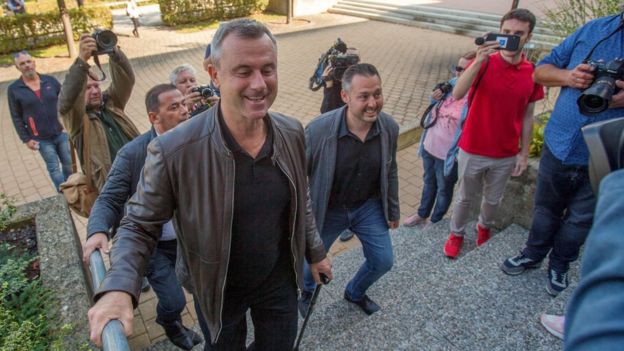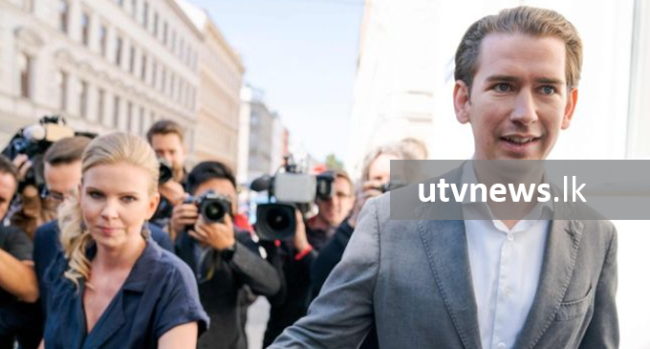(UTV|COLOMBO) – Austria’s conservative People’s Party, led by former Chancellor Sebastian Kurz, has won a clear victory in Sunday’s general election.
With nearly all the votes counted, Mr Kurz’s party has more than 38% of the vote, up from 31% last time round.
His former coalition partners, the far-right Freedom Party, have received 17.3%, a sharp fall.
The snap general election was called after a scandal caused the previous coalition government to collapse.
Polling stations opened at 07:00 (05:00 GMT) on Sunday and closed at 17:00. Some 6.4 million people were eligible to vote in the election.
What happens next?
The People’s Party triumphed in eight of Austria’s nine federal states, losing only Vienna to the Social Democrats.
Despite the People’s Party’s strong showing, it will not have a majority in parliament and Mr Kurz will need coalition partners.
The 33-year-old could choose to renew his alliance with the Freedom Party – the source of the scandal – but may want to look at other options.
A three-way pact with the Greens (which received 12.4% of the vote) and the liberal pro-business Neos party (7.4%) is considered far more likely than a grand coalition with the Social Democrats (21.5%).
But coalition talks are widely expected to be difficult, and may last for weeks.
Green leader Werner Kogler said on Sunday evening that the party would need to see “radical change” from the right-wing policies pursued by the previous coalition.
What did the ex-coalition partners say?
Appearing at party headquarters to a rapturous welcome from party activists, Mr Kurz said he was “overwhelmed and almost speechless”.
He added: “I would like to take this opportunity to sincerely thank all of our voters.”

Who is Sebastian Kurz?
The son of a secretary and a teacher, he became active in the People’s Party at the age of 16.
As a law student in Vienna he was elected chairman of the party’s youth wing. He quit his studies in 2011 to become a junior interior minister, rising to foreign minister in 2013 at the age of 27.
Two years later he presented a plan to improve the integration of immigrants. However, he was also full of praise for Hungary’s populist Prime Minister Viktor Orban, and claimed credit for closing the Balkan migrant route in 2016.
Elected chairman in May 2017, he rebranded the party as the Turquoise Movement then served as chancellor from December 2017 to May 2019, when the Ibiza-gate brought down the coalition. (BBC)
[alert color=”faebcc” icon=”fa-commenting”]Keeping up to date with breaking news while you are on the move is now simple with UTV Alerts [textmarker color=”8a6d3b”]Type REG UTV and send to 77000[/textmarker] on your Dialog, Airtel, or Hutch mobile connection[/alert]
